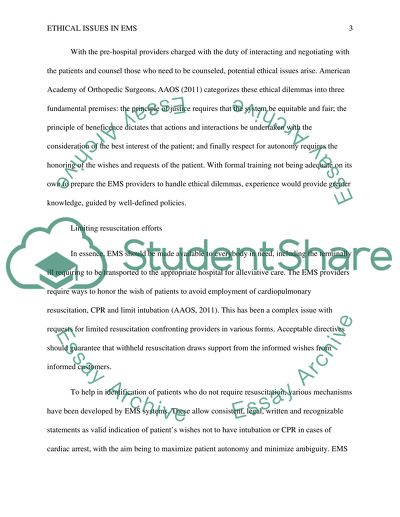Cite this document
(“Ethical issues in emergency medical service operations Research Paper”, n.d.)
Ethical issues in emergency medical service operations Research Paper. Retrieved from https://studentshare.org/health-sciences-medicine/1462976-ethical-issues-in-emergency-medical-service-operations
Ethical issues in emergency medical service operations Research Paper. Retrieved from https://studentshare.org/health-sciences-medicine/1462976-ethical-issues-in-emergency-medical-service-operations
(Ethical Issues in Emergency Medical Service Operations Research Paper)
Ethical Issues in Emergency Medical Service Operations Research Paper. https://studentshare.org/health-sciences-medicine/1462976-ethical-issues-in-emergency-medical-service-operations.
Ethical Issues in Emergency Medical Service Operations Research Paper. https://studentshare.org/health-sciences-medicine/1462976-ethical-issues-in-emergency-medical-service-operations.
“Ethical Issues in Emergency Medical Service Operations Research Paper”, n.d. https://studentshare.org/health-sciences-medicine/1462976-ethical-issues-in-emergency-medical-service-operations.


